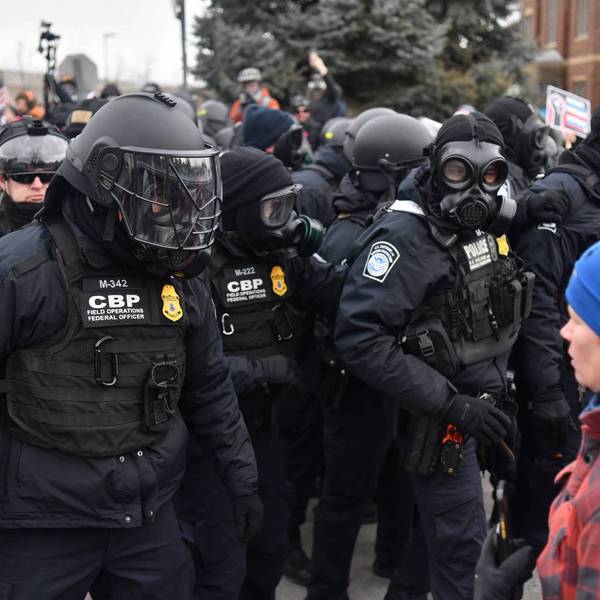Egyptian authorities on Saturday sentenced 75 people to death for taking part in a 2013 sit-in protest against the military ouster of democratically elected president Mohammed Morsi--a court decision that came days after the United States sent "the wrong message to one of the most abusive governments in Egypt's recent history" by restoring $195 million in military aid to the nation.
The dozens sentenced in Saturday's ruling are among 739 defendants, including members of the now-banned Muslim Brotherhood and members of the press, the government is targeting over their participating in the protest. The day became known as the al-Rabaa Massacre, as security forces under the command of now-President Abdul Fattah al-Sisi killed hundreds of people in a matter of hours.
The lifting of the blocked military aid was announced last week, with the Trump administration commending purported "steps Egypt has taken over the last year in response to specific U.S. concerns." The administration had withheld aid last year, citing "serious concerns regarding human rights and governance in Egypt."
Rather than making any gains, however, Amr Magdi, Middle East and North Africa researcher with Human Rights Watch, argues that the county is actually in the midst of "intensifying crackdown on human rights by the Egyptian authorities." As such, "The decision to release the funds despite a significant deterioration in the rights situation in Egypt is both baffling and troubling."
One Egyptian American who was held as a political prisoner there for three years called the release of aid a "step back for human rights."
Speaking to Middle East Eye, Aya Hijazi said, "This gives the military a green light to continue the reign of suppression it is embarking on."
Still, the development was not seen as suprising--Egypt is the second biggest recipient of U.S. foreign aid after Israel. Moreover, President Donald Trump has offered praise for Sisi on multiple occasions, including calling him "a fantastic guy" who's done "a fantastic job."
Yet Trump is merely continuing "U.S. tradition by coddling Egypt's strongman," Washington Post reporter Ishaan Tharoor argues Monday.
Tharoor points to a recent article in the New York Times by David D. Kirkpatrick, which argues that the Obama administration in fact paved the way for Trump's embrace of dictators like Sisi, and notes that "some of the coup's most vocal American advocates went on to top roles in the Trump administration, including Secretary of Defense James Mattis and Michael Flynn, Mr. Trump's first national security adviser."
He continued:
Mr. Obama and his closest advisers ... hoped to shift established American policy and forge a new relationship with the Arab world in order to undermine the appeals of anti-Western extremism. Even in the final days before the takeover, Mr. Obama was urging respect for Egypt's free elections. In an 11th--hour phone call he implored Mr. Morsi to make "bold gestures" to hold onto his office.
Most of his government, though, took the other side, reflecting longstanding worries about the intrinsic danger of political Islam and about the obstacles to Egyptian democracy.
In a White House meeting the day after Mr. Morsi's ouster--two days after that last phone call--Mr. Obama yielded to those views when he accepted the military takeover. In doing so, he had taken a first step toward the policies that have become the overriding principles of the Trump administration.
Other observers say the way was paved far before Obama took office.
"The U.S. has looked forward to working with every single Egyptian regime to date," Sherif Gaber, member of the Mosireen Independent Media Collective in Cairo, previously told Common Dreams. "It's no secret that America's greatest interest for Egypt is a stable partner to maintain status quo relations favoring U.S. policy in the region, regardless of whether that was Mubarak, Morsi, or now Sisi."




